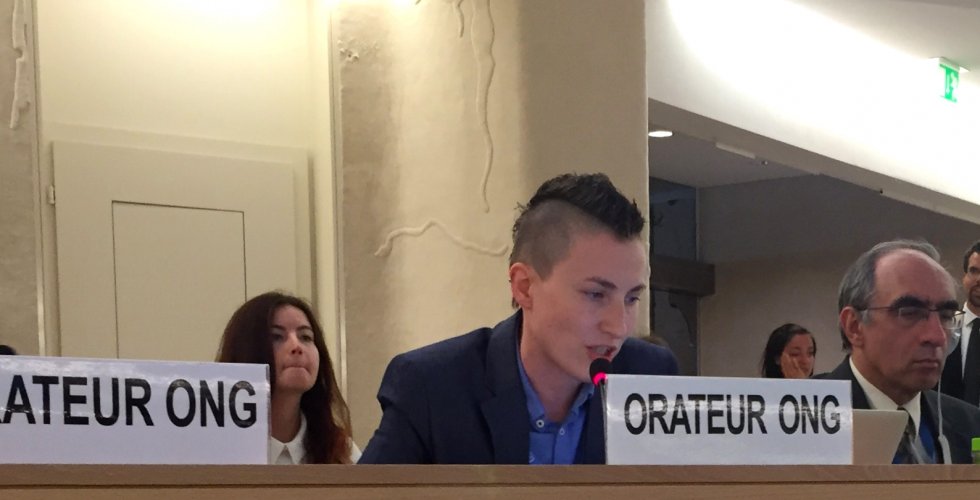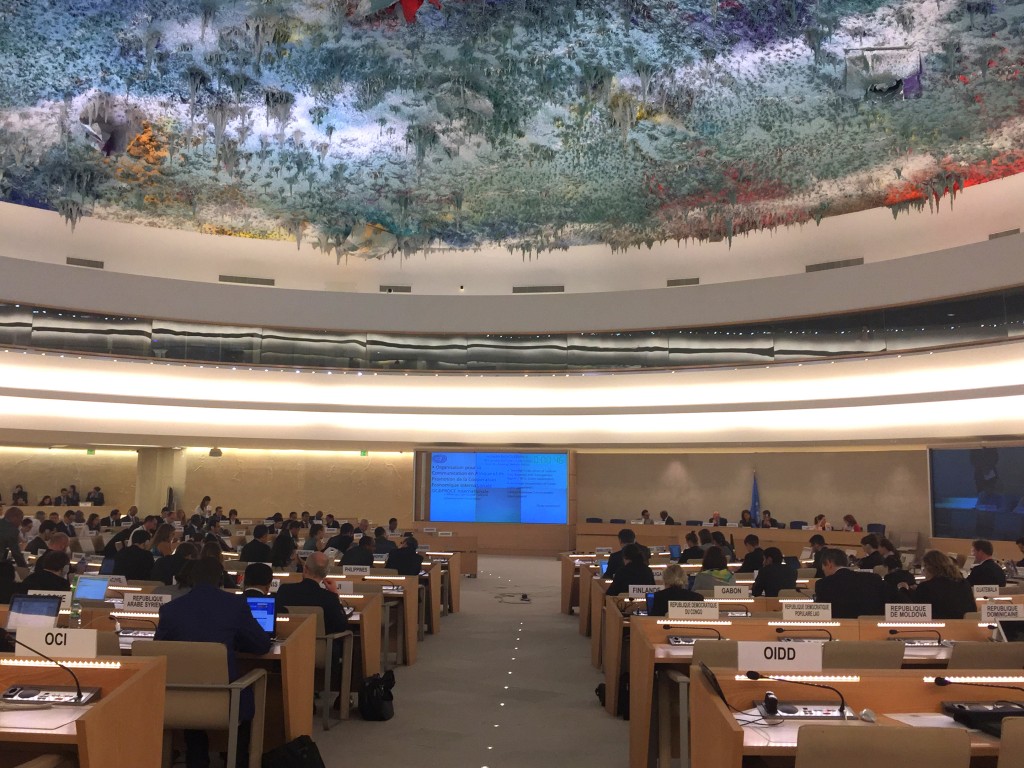
Sexual orientation and gender identity resolution
The UN Human Rights Council, the primary UN body dealing with human rights, is in its 32nd session between June 13 and July 1. It is a body composed of 47 member states from all regions of the world. It is a special session of the Council for the rights of LGBTQ persons as the Council will vote on a new sexual orientation and gender identity resolution.
The proposed resolution on Protection against violence and discrimination based on sexual orientation and gender identity is jointly presented at the Human Rights Council by 7 Latin American countries Argentina, Brazil, Chile, Colombia, Costa Rica Mexico and Uruguay.
The draft text builds upon two previous resolutions, the first presented by South Africa in 2011, and the second by a Latin American Core Group in 2014, and adopted by a majority of the Council with support from all regions.
These previous resolutions mandated two reports by the UN High Commissioner for Human Rights, which documented both serious violations and positive developments in all regions of the world. The High Commissioner highlighted, however, serious protection gaps, and noted the need for a mechanism to bring more systematic attention to the issues.
The resolution would create an Independent Expert to assess implementation of existing international human rights law, identify best practices and gaps, raise awareness of violence and discrimination based on sexual orientation and gender identity, engage in dialogue and consultation with States and other stakeholders, and facilitate provision of advisory services, technical assistance, capacity-building and cooperation to help address violence and discrimination on these grounds.
The statement delivered by RFSL’s International Advocacy Advisor, Micah Grzywnowicz, on gender identity contributed to the call of global civil society on the Human Rights Council to adopt the resolution and establish the Independent Experts. RFSL’s statement focused specifically on issues faced by trans persons and in particular related with legal gender recognition.
The Full Statement
The Swedish Federation for LGBTQ Rights – RFSL joined by International Lesbian and Gay Association; LGBT Denmark – the National Organization for Gay Men, Lesbians, Bisexuals and Transgendered People; International Humanist and Ethical Union; International Federation for Human Rights, FIDH; Lesbian and Gay Federation in Germany LSVD; Human Rights Law Centre.
– delivered by Micah Grzywnowicz
Thank you Mr. President,
The VDPA [Vienna Declaration and Programme of Action] underscores the universal principles of equality and non-discrimination.
Each person’s self-defined gender identity is integral to their personality and is one of the most basic aspects of self-determination, dignity and freedom. Too many transgender persons are forced to live with identity documents that do not correspond to their self-defined gender. Opening a bank account, applying for a job, boarding a plane, or lodging a harassment complaint can become a repeated source of harassment, unfounded suspicion, and even violence.
The right to recognition before the law (without prerequisites that infringe other rights) is guaranteed under article 6 of the UDHR [Universal Declaration of Human Rights].
However, many States in all regions require the individual to give up one or more human rights to gain another for the protection of private life. Requirements may include diagnosis of a mental disorder, sex reassignment surgery, forced sterilization or hormonal therapy, and being single or divorced. These violate a person’s dignity, right to form a family and right to be free from degrading and inhumane treatment.
Nevertheless, we welcome the adoption of strong laws in increasing number of States around the world that enable quick, accessible and transparent gender recognition procedures based on self-determination. These laws enable transgender persons to be active citizens contributing to the development of the societies they live in.
The creation of an independent expert mandate on sexual orientation and gender identity would raise awareness and bring greater understanding of these issues. It would also be a platform to share best practices and provide technical assistance to States in ensuring human rights based laws, policies and procedures on the legal gender recognition of all persons.
We call on this Council to adopt resolution L.2 on “Protection against violence and discrimination based on sexual orientation, and gender identity,” and to engage in constructive dialogue on these issues.

